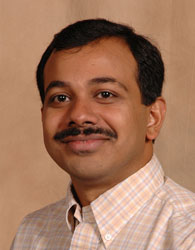GIAN Course on Practical Biological Signal Analysis
Course Contents:
- Introduction to biological signal analysis
- Discrete-time signals and systems
- Introduction to Matlab with exercises
- Spectral analysis
- Signal conditioning
- Digital filtering
- Matlab exercises: introducing ECG signals, reducing noise from ECG signals, analysing ECG spectral content and filtering
- Feature extraction
- Classification
- Matlab exercises: feature extraction, classification of EEG signals
- Mini group project: Attendees to work on real world problem solving exercise involving ECG signal

